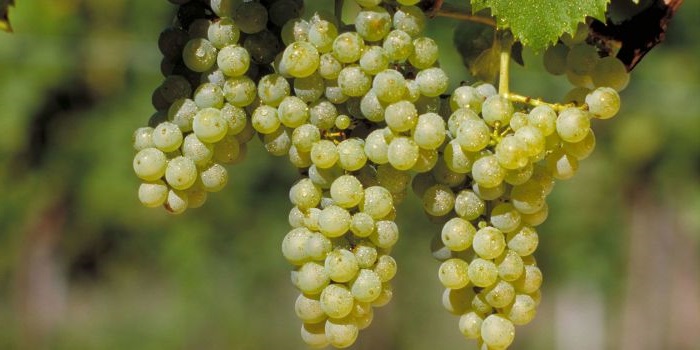German Grapes
Müller-Thurgau

Müller-Thurgau is a crossing of Riesling and Silvaner.
It is Germany's second most planted grape, after Riesling.
It is planted in every German wine region, with the largest planting in Rheinhessen and Baden.
Müller-Thurgau Flavors
Citrus, Green Apple, White Peach, Melon, and Apricot are typical Müller-Thurgau flavors, with Black Currant and Floral notes (Geranium. Rose Petals), and Flinty Minerals.
Lime |
Apple |
Peach |
Melon |
Apricot |
Black Currant |
Rose Petals |
Flint |
About Muller Thurgau
In Italy
Müller-Thurgau is also popular in the Alto Adige region of northern Italy.
In New Zealand
In New Zealand, Müller-Thurgau was the most planted grape variety before it was taken over by Chardonnay and Sauvignon Blanc.
In Cold Climates
Because Müller-Thurgau ripens early, it has become an important grape in cold climates like in Switzerland, England, and USA (Washington).